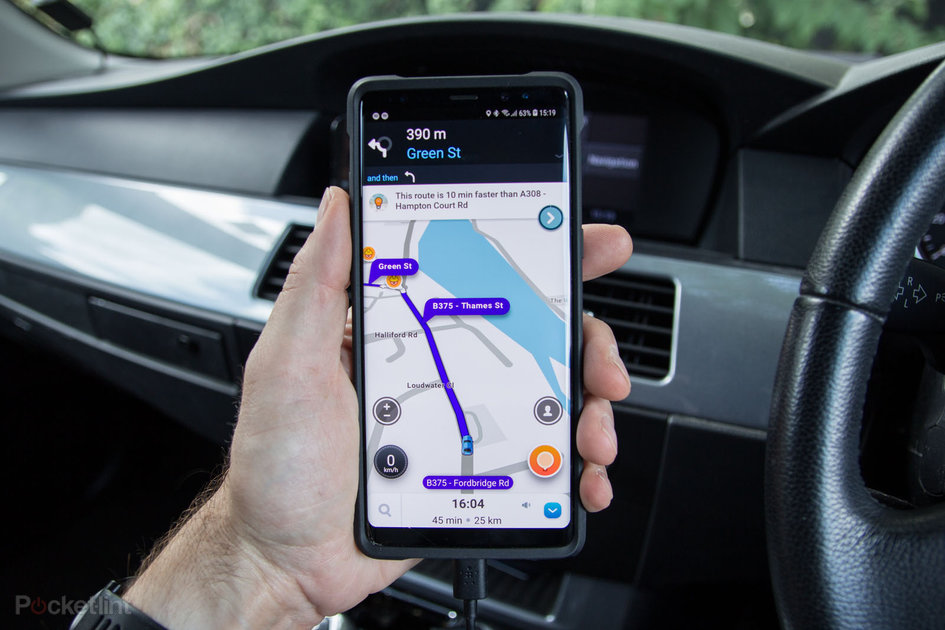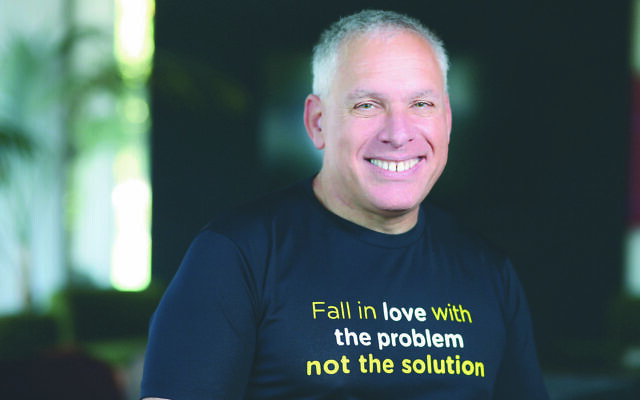For Uri Levine, where there’s a will there’s a Waze
Waze founder Uri Levine sold his breakthrough platform, which refined traffic routes, to Google for $1.15 billion. He now has around 10 startups in his portfolio, each addressing a single common problem.
When serial entrepreneur Uri Levine, the co-founder of Waze, suffered a serious leg injury skiing in 2021, many questioned if he would ever ski again. But giving up, says Levine, was “not an option.” For perseverance is a trait Levine lives by and places of utmost importance when it comes to building a successful startup.
Levine, 57, has built several. Known for helping users to avoid troublesome jams, Waze was born in 2007 as a solution to help deal with congestion issues in Tel Aviv, Levine’s home town. It refines traffic routes using real-time information from its 150 million monthly users worldwide.
When Waze was sold to Google in 2013 for $1.15 billion, Levine left the next day to focus on solving more “big problems”. His next unicorn (a company that reaches valuation of more than $1 billion) Moovit, a kind of Waze for public transport, is used by more than 750 million individuals worldwide, and was bought by Intel in 2020 for $1 billion.

Levine has around 10 active startups in his portfolio, each one successfully addressing a single problem. And Levine wants to help others do the same with his new book Fall In Love with the Problem – Not the Solution, a Handbook for entrepreneurs, a guide for entrepreneurs to build their own highly valued companies. The book was inspired by Levine’s late mother who suggested he write it after giving a talk at her assisted care facility in 2018. “It is fulfilling my destiny of making a bigger impact. Maybe some would call that tikkun olam (repair the world),” he tells Jewish News.
Endorsed by Apple co-founder Steve Wozniak, among others, it shares his nuggets of wisdom and winning formulas for success.
“There are probably very few factors that dramatically increase the likelihood of being a successful startup, but perseverance is at the top,” says Levine, who recently returned to the slopes. He says “running a startup is a long and challenging journey – a rollercoaster of ups and downs, and one of failures.
“Think of it as three main journeys: maybe the first phase is product market fit and the next one is scale, and then business model, or maybe it is in a different order. It’s an ever-changing journey and only once you have figured out these three main journeys, can you create significant value to everything else.”

Levine has multiple pieces of advice for entrepreneurs: “Fall in love with the problem not the solution, fail fast, making decisions based on conviction and always listening to users and customers.”
Father-of-five Levine credits his success in part to his six years serving in the Israel Defense Forces. “As a child I was a bit of a troublemaker, always exploring things. I never took anything for granted, questioning everything and coming up with crazy ideas. My dad would say: “Give it a try?” So the idea of trying and failing was with me since I was a kid. When I was in the military we were in a tough neighbourhood but there were a lot of good things to come out of this that help you later as an entrepreneur – you mature faster, establish leadership skills, and a sense that giving up is not an option. The IDF was an evolution of me from a trouble maker into an officer.” Now a serial entrepreneur, investor, mentor, educator and author, Levine is committed to spreading entrepreneurial thinking, sharing the lessons he has learned en route.
There were times, admits Levine, that Waze nearly died. “When we were looking to raise our second financing round in 2010, we didn’t have enough traction outside of Israel, and while we were trying to figure things out, we were running out of money. We were about a month away from running out but were able to raise the capital.”
Levine founded Waze alongside fellow Israelis Ehud Shabtai and Amir Shinar. All three had at some point worked at technology company Comverse.
The idea of trying and failing has been with me since I was a kid.
“We were all incubating similar ideas and then came to the realisation that in order to solve traffic jams, we need knowledge of traffic jams.” The next year was spent developing the concept, before launching commercially in 2008.
Waze relies on its millions of users to submit updates on accidents, roadworks, jams and so on as they drive. Waze aggregates this realtime data to calculate the best possible routes for its drivers.
When Google bought Waze, there were nearly 50 million users. There are more than 700 million to date. Was it the right decision to sell? “When you make a decision, you don’t know what it would be like if you had chosen a different path so by definition, it is the right one. Yes, Waze is worth way more today than it was then, but what we don’t know is if Waze would have become what it is today without the decision we made,” notes Levine, who unsurprisingly “hates traffic” and mostly uses his bike to get around. “I’ll check the Waze application to figure out if it’s quicker to take my bike!”
Google’s acquisition of Waze was a significant moment for Israel, aka ‘the startup nation’. There are now close to 100 unicorns operating in Israel, with a total value of $255 billion, placing it second in the world, behind the US. “There are way more unicorns than there were 10 years ago, and Waze was a beacon to the rest of the industry and acting as a target, with many entrepreneurs telling me they want to be bigger than Waze, and I hope that they will.”
Levine’s startups all have a common goal: solve a problem, create value and make the world a better place.
Israel is credited as having more startups per capita than any other country. “There are multiple reasons: the culture, a lower fear of failing, people are willing to try, favourable and supportive regulations that encourage investors, and there are lot of engineers with experience.”
Levine’s startups all have a common goal: solve a problem, create value and make the world a better place. There’s WeSki, an online booking platform for custom-made ski holidays; FairFly, which enables significant savings on plane tickets by tracking price changes, and agritech (agriculture and technology) company SeeTree, which helps farmers and tree growers to track their trees’ health and productivity. “And I assume there will be many more that I will help create and build in the future.
“The world is full of problems, and the ones I can figure out a way to address I will.”
Uri Levine’s Fall in Love with the Problem, Not the Solution: A Handbook for Entrepreneurs (Watkins Publishing) is published on 17 January and is available to order via Amazon now.

Thank you for helping to make Jewish News the leading source of news and opinion for the UK Jewish community. Today we're asking for your invaluable help to continue putting our community first in everything we do.
For as little as £5 a month you can help sustain the vital work we do in celebrating and standing up for Jewish life in Britain.
Jewish News holds our community together and keeps us connected. Like a synagogue, it’s where people turn to feel part of something bigger. It also proudly shows the rest of Britain the vibrancy and rich culture of modern Jewish life.
You can make a quick and easy one-off or monthly contribution of £5, £10, £20 or any other sum you’re comfortable with.
100% of your donation will help us continue celebrating our community, in all its dynamic diversity...
Engaging
Being a community platform means so much more than producing a newspaper and website. One of our proudest roles is media partnering with our invaluable charities to amplify the outstanding work they do to help us all.
Celebrating
There’s no shortage of oys in the world but Jewish News takes every opportunity to celebrate the joys too, through projects like Night of Heroes, 40 Under 40 and other compelling countdowns that make the community kvell with pride.
Pioneering
In the first collaboration between media outlets from different faiths, Jewish News worked with British Muslim TV and Church Times to produce a list of young activists leading the way on interfaith understanding.
Campaigning
Royal Mail issued a stamp honouring Holocaust hero Sir Nicholas Winton after a Jewish News campaign attracted more than 100,000 backers. Jewish Newsalso produces special editions of the paper highlighting pressing issues including mental health and Holocaust remembrance.
Easy access
In an age when news is readily accessible, Jewish News provides high-quality content free online and offline, removing any financial barriers to connecting people.
Voice of our community to wider society
The Jewish News team regularly appears on TV, radio and on the pages of the national press to comment on stories about the Jewish community. Easy access to the paper on the streets of London also means Jewish News provides an invaluable window into the community for the country at large.
We hope you agree all this is worth preserving.






















